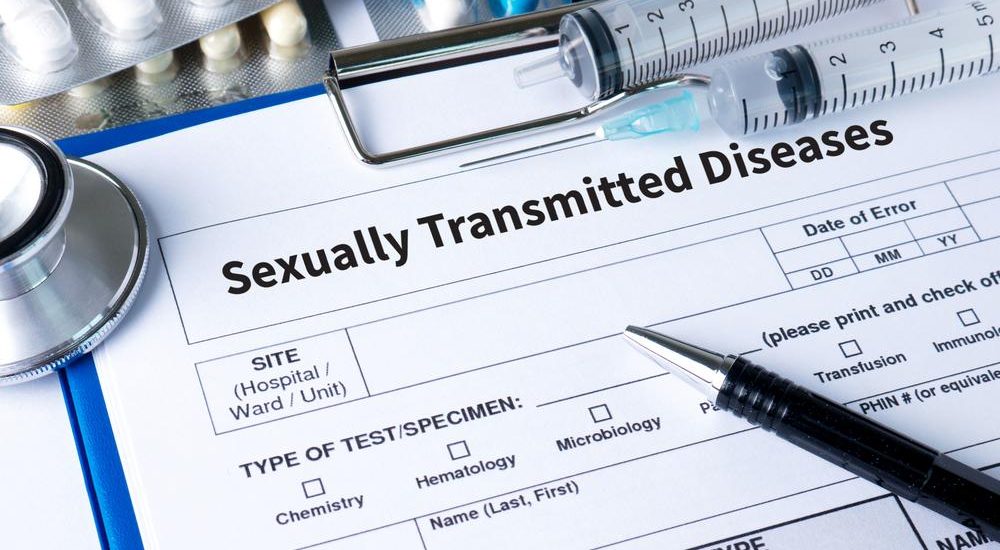Sexually transmitted diseases (STDs) can be deadly, and ensuring that everyone has access to testing and information on the subject is crucial.
Unfortunately, there are many myths about STDs, and while our society tends to place a high value on sexual activity, educating people about the risk of reckless sexual behavior has often been undervalued or even actively discouraged.
A famous example is the reaction to the discovery of HIV in the 1980s. This virus was blamed on a range of factors, none of which were the cause, and the associated ignorance and stigma led to many people taking ill-advised risks or avoiding testing and treatment. Fortunately, efforts to educate people on STDs have increased awareness in recent years.

How do you get Tested?
It is easier now than ever before to go in for STD testing. Phoenix has many clinics that offer this service. Besides STD testing facilities around Phoenix, you can also find places available in every major US city to be tested for the full range of STDs. This is usually done by taking a blood or urine sample or a swab, and the results can be made available quickly, together with appropriate safe sex or treatment advice.
What are STDs?
STDs are contagious diseases passed on by someone who is already infected through sexual activity. They can be produced by bacteria, viruses or parasites. Many of the STDs caused by bacteria and parasites can be treated with the use of antibiotics or topical lotions. The most common bacterial STDs are syphilis, gonorrhea and chlamydia.
Those STDs that are produced by viruses are often incurable, although advances in medicine mean that they can be treated to varying degrees. Among the most common virus infections are herpes, HPV and the most dangerous, HIV, which can lead to AIDs.
How is HIV Spread?
Contrary to many urban myths and much disinformation, it is not possible to contract HIV through kissing or through toilet seats. The most common way to get HIV is through sexual activity with a HIV-positive person, sharing needles with someone who is infected or through direct contact with HIV-contaminated blood.
What Type of STD Test is Appropriate?
If you engage in casual sex or have ever had unprotected sex, it is a good idea to be tested for the whole range of STDs. It is worth doing so even if you always use protection during sexual activity or if you have no obvious symptoms of infection, as with many STDs, symptoms are often not apparent for several weeks.
Syphilis, Gonorrhea and Chlamydia
These bacterial infections are the most common STDs in the US, and they are particularly hard to combat because they are often unaccompanied by symptoms. They usually infect the genital area but can go on to affect the eyes, joints and mucous membranes, and newborn babies can pick up the infection from their mothers during labor. If left untreated, these infections can cause infertility and serious complications.
The good news is that all of these infections can be treated with antibiotics. Once an infection occurs, it is important to continue regular screening as the infection can sometimes reoccur, particularly syphilis, which can remain dormant for long periods.
HPV, herpes and HIV
These are the main viral STDs. As with many bacterial STDs, there may be no initial symptoms following infection, although all three eventually lead to symptoms.
In the case of HPV, the initial signs include warts in the genital or head region, and lesions can also form on the respiratory organs, which can lead to breathing problems. Untreated warts and lesions can also become cancerous if they are left untreated.
A herpes infection can have numerous manifestations and affect many parts of the body, including the face, mouth, hands and genitals. Serious contagions can lead to damage in the eyes, brain and central nervous system or trigger mental health problems.
HIV is a deadly viral infection that eventually leads to Acquired Immunodeficiency Syndrome (AIDS). Over time, HIV weakens and destroys the immune system, which leaves patients vulnerable to a range of infections that eventually can prove fatal.
Hepatitis
Hepatitis is not as well known as STDs like HIV, but it kills more people than AIDs. It is a range of infections associated with inflammation of the liver. Only two types of the virus, Hepatitis B and Hepatitis C, are transmitted sexually. Among the possible indicators of Hepatitis are yellowing of the skin, poor appetite, vomiting and fatigue.
Don’t take the risk: get tested
In all of these cases, early testing and treatment will maximize your chances of recovery. Regular full STD tests are essential for all sexually active adults, even if you practice safe sex, and should be a routine part of your health care regime.
















